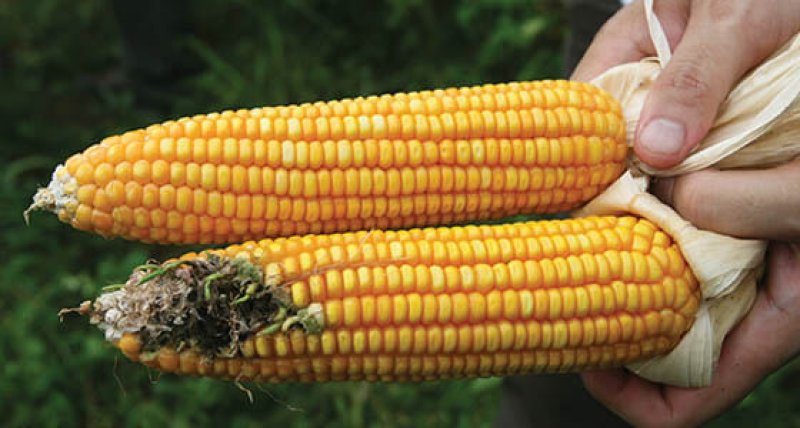The food and farming industry is in a box. On the one hand, there are innovative tools in the form of genetic engineered traits in roll out ready form that can play an important role in addressing the approximately two-fold increase in global food demand that we face over the next 25 years as population and prosperity grow. Those technologies have been carefully vetted by independent science organizations from around the world. They are not a panacea—modern farming is a bitch, whether you are an organic farmer or use more conventional strategies—but technology is central.
But counter forces are strong. There are dedicated opponents to genetic modification around the world. It’s not science based, although there are important debates worth having about the proper mix of technologies to meet different food challenges in different parts of the world. These GM opponents have coalesced around the issue of labeling as means to an end: fatally stigmatizing biotechnology as some how uniquely different and dangerous—a ‘violation of nature.’
Bruce Chassy, Professor Emeritus of Food Science at the University of Illinois and an advisor to the Genetic Literacy Project and University of Georgia Professor of Crop and Soil Sciences Wayne Parrott, address these issues and more in a comprehensive article in the January issue of IFT (International Food Technology),”GMOs: A Plateful of Promises.”
According to Chassy and Parrot, the objective of mandatory labeling is total elimination of GM foods from the food chain. Concessions will not appease anti-GMO activists, who are small in number but are driving this legislative push through web and media campaigns. They contend that more regulation would not reassure consumers; rather it would ‘scare the hell’ out of them. The only justification for more regulation, they contend, should be scientific evidence that a danger exists and that the regulation will mitigate the danger at a reasonable and acceptable cost and without creating greater harm. Indeed, with GM crops, not planting them creates more damage and costs more than planting them. We encourage you to read the IFT article in its entirety. We have some key excerpts to whet your appetite:
…all plant breeding depends on genetic modification. Genetic engineering is the most precise and predictable of the available breeding methods, which produces the fewest unintended and potentially undesirable changes into plants.
GM crops have increased harvests by decreasing losses to pests, decreased input and labor costs, reduced the impact from agrichemical use, helped conserve soil and water resources, and conferred a number of environmental and sustainability gains. One of the major unanticipated benefits has been a reduction in greenhouse gas emissions from agriculture, equivalent to taking 22 million cars off the roads, which is roughly 36% of the cars registered in Great Britain. Repeated claims that planting of GM crops would lead to catastrophic environmental disasters have not materialized.
GM technology to improve color, flavor, nutrition, and other consumer-desirable traits is only now beginning to reach the marketplace. Improved low-polyunsaturated vegetable oils suitable for thermal processing and oils that are high in omega-3 fatty acids are two examples. There is a concerted push by the soybean industry to plant high-oleic soybeans on 25–30% of U.S. acreage by 2023. For the first time in history, oil comparable in quality to that of olive oil will be abundant at an affordable price.
There is no biological basis to believe that unique changes could occur in genetic engineering relative to conventional breeding. Two lines of evidence support this conclusion. Firstly, very careful compositional studies have demonstrated that the composition of GM crops is no different from that of their conventional versions. Extensive studies have also shown that GM plants more closely resemble their parental strains at the level of gene transcription, proteins present, and metabolite composition than do different varieties of the same crop. These results show that genetic engineering is less mutagenic and disruptive than are other breeding methods. Therefore, there is no scientific justification to regulate, for example, an herbicide tolerant crop produced through genetic engineering, yet not regulate that same exact herbicide tolerance if obtained via mutagenesis. It is even less justifiable that breeders can breed in dozens if not hundreds of unknown genes from distant genera into crop plants (some of species which are even known to be toxic) without regulation, while a single gene transferred between two members of the same species is strictly regulated.
If the science is so clear, why is there so much controversy about the safety of GM crops? A plethora of websites proclaim the harmful effects of consuming GM foods from crops (while ubiquitous foods from GM microorganisms are largely ignored). These sites often point to a handful of studies to support their premise, and consistently ignore the hundreds of studies that run counter to it, dismissing them as performed by industry, paid for by industry, or performed by scientists sympathetic to industry.
Undoubtedly part of the opposition to GM crops comes from genuine concerns about food and environmental safety, and these can usually be addressed by providing the necessary information. Other concerns are ideological in nature; anti-corporate feelings play a prominent role. There is also a highly motivated economic component behind opposition to GM crops. Sources of moral and economic support for the campaign against GM crops include the United Nations, the European Union, and individual European Union governments, foundations, and key organic food producers and purveyors of natural foods.
Read full original article: GMOs: A Plateful of Promises































